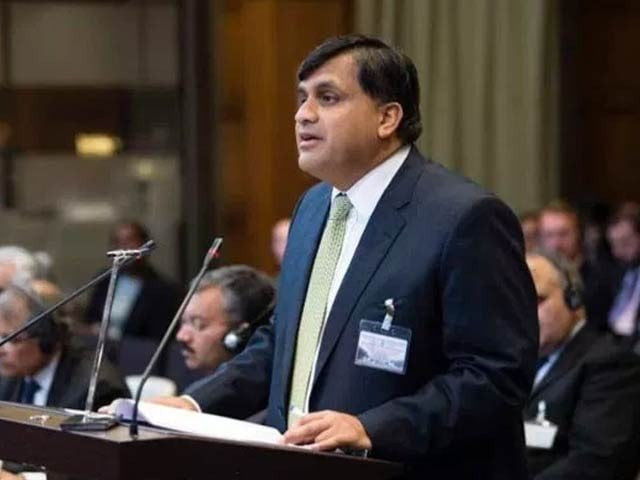Pakistan, US in ‘secret talks’
FO spokesperson confirms Islamabad and Washington continue to communicate with each other

FO spokesperson confirms Islamabad and Washington continue to communicate with each other. PHOTO: FILE
Officials familiar with the development said some Trump administration's officials visited Islamabad this week and held talks with their Pakistani interlocutors, in what appears to be a last ditch effort to find a common ground in the fight against terrorism.
A Pakistani delegation is also expected to travel to Washington in coming days as part of the ongoing behind the scene diplomatic maneuvers, added the officials.
Pakistan to hold talks on equal footing with US defence secretary
They, however, refused to divulge further details including the composition of the US delegation and the outcome of discussions. Some sources indicated that a high ranking American intelligence official recently visited Islamabad. But the Foreign Office and US Embassy in Islamabad said they were not aware of any such visit.
“These are highly sensitive matters related to our national security and hence cannot be discussed publically at the moment,” said one official with the direct knowledge of the back channel talks.
At his weekly briefing, Foreign Office Spokesperson Dr Muhammad Faisal confirmed that Pakistan and the US continued to communicate with each other on various issues of mutual interest at different levels.
Pakistan and the US quid pro quo
“Since, it is being done outside media glare, I cannot share further details with you,” Faisal replied when asked to share details of such contacts.
The back channel efforts came just days after the US suspended the entire security assistance to Pakistan in wake of President Donald Trump’s New Year tweet in which he accused Islamabad of ‘lies and deceit’.
Washington has stepped up pressure on Islamabad to do more in the fight against terrorism. Reports suggest that Pakistan was given ‘specific targets’ to act on within the stipulated time frame. Pakistan, however, is adamant that it has done enough in the fight against terrorism and that there are no organized presence of any militant outfit.
Trump plans to send lieutenants to Pakistan with tough message
“On the question of the presence of Taliban leadership in Pakistan, we completely deny this allegation,” Faisal insisted.
However, he said Pakistan had repeatedly said that it would take action on the basis of any actionable intelligence and information provided to us.
He said on the basis of intelligence shared with the US, Pakistan had been able to secure the region and decimate al-Qaeda.
“This has been acknowledged by the US leadership. We have conveyed to the US that actionable intelligence sharing can help in advancing the shared goal of defeating terrorism from the region,” he added.
When his attention was drawn towards the recent statement by Defence Minsiter Khurrum Dastagir that Pakistan could block key supply lines for the US forces in response to the Trump administration’s hard line approach, the spokesperson said both sides ‘understand the importance of the lines of communication.’
Secret meetings in Pakistan expose obstacles to Afghan peace talks
“Pakistan has been facilitating the US-led mission in Afghanistan through its ground and air lines of communication for the last sixteen years. Pakistan’s support to the US has been critical in dealing with the challenges of terrorism in the region,” he said, but stopped short of saying that Pakistan was contemplating to withdraw that facility.
He also clarified the remarks of Foreign Minister Khawaja Asif that US was no more an ally of Pakistan. “Remarks of the foreign minister need to be seen in the proper perspective. The foreign minister was expressing his frustration at the unwarranted US accusations against Pakistan and the unilateral decision to suspend the security assistance, despite Pakistan’s extra-ordinary sacrifices and contribution in the war against terrorism,” Faisal explained.
“The provocative statements by the US leadership and Pakistan’s response has been measured, as we believe that continued Pak-US cooperation is important for the stability of the region, especially Afghanistan,” he stressed.
Meanwhile, the foreign office spokesperson expressed concerns over the possible implications of India’s move to launch 31 satellites including earth observation spacecraft Cartosat this week.
“All space technologies, including earth observation satellites, are inherently dual use and can be employed for both civilian and military purposes,” Faisal explained.
He said all states had a legitimate right to pursue peaceful uses of space technologies. “However, given the dual-use nature of such technologies, it is essential that such pursuits are not directed towards a buildup of destabilizing military capabilities, which can negatively impact the regional strategic stability,” he added.



















COMMENTS
Comments are moderated and generally will be posted if they are on-topic and not abusive.
For more information, please see our Comments FAQ